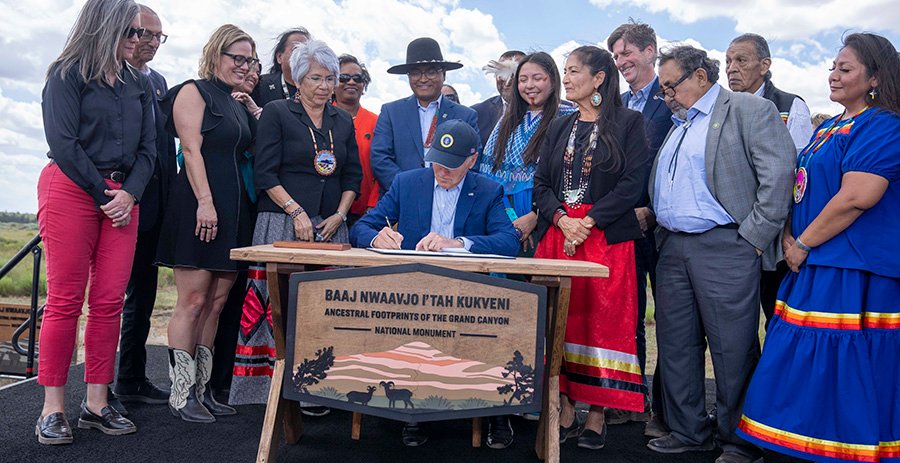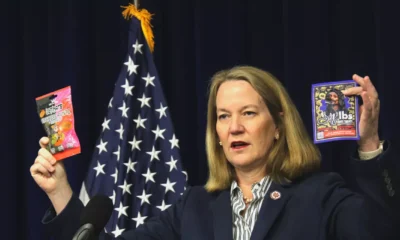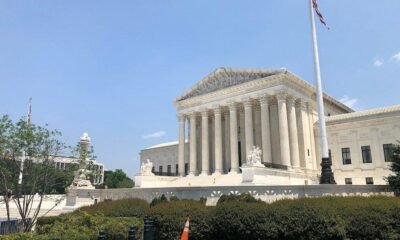Baaj Nwaavjo I'tah Kukveni
Judge Rules President Petersen and Ben Toma Unqualified in National Monument Case

A federal judge has dismissed a lawsuit from Republican state lawmakers aimed at overturning the Biden administration’s designation of nearly a million acres of federal land near the Grand Canyon as a national monument.
In a ruling dated January 27, U.S. District Court Judge Stephen McNamee stated that Senate President Warren Petersen and former House Speaker Ben Toma lacked the legal standing to challenge the 2023 establishment of the Baaj Nwaavjo I’tah Kukveni Ancestral Footprints of the Grand Canyon National Monument. According to McNamee, the authority to contest such federal designations rests solely with the executive branch.
Neither Arizona Governor Katie Hobbs nor Attorney General Kris Mayes opposed the monument’s creation. Consequently, Judge McNamee asserted that the lawmakers could not hire attorneys to intervene on behalf of the state.
This ruling, however, could spark further legal actions.
During his presidency, Donald Trump reduced the size of the Grand Staircase-Escalante National Monument in Utah and diminished the Bears Ears National Monument by 85%. These reductions were reversed following Biden’s administration; however, related litigation remains unresolved.
Perry Wheeler, a spokesman for Earthjustice, a group involved in litigation regarding this case and the Utah matter, remarked that any attempt by Trump to alter national monuments would be unlawful. “Nothing in the Antiquities Act authorizes a president to remove parcels from a national monument,” he stated.
A representative for the current House Speaker Steve Montenegro mentioned that the new speaker is reviewing the ruling to decide on future steps. Petersen indicated that the state is likely to appeal, arguing that the creation of the monument represents an unconstitutional land grab.
Attorney General Mayes expressed satisfaction with the ruling, denouncing the actions of Petersen and Toma as a “power grab” that exceeded their authority and squandered taxpayer money.
The case originated from a lawsuit filed by Petersen and Toma, who alleged that Biden’s actions constituted an illegal land grab. They acknowledged that the Antiquities Act permits a president to designate federal lands for protection but contended that such designations must focus on historic landmarks and cannot exceed the area necessary for protection and management.
The lawmakers argued that the Baaj Nwaavjo I’tah Kukveni National Monument, encompassing 1,462 square miles, does not meet these criteria. They claimed that the designation represents an overreach of power, enabling the Biden administration to restrict access to vast federal lands.
Additionally, they expressed concerns regarding potential economic damage, citing the impact on uranium mining and job loss in adjacent state trust lands. Judge McNamee dismissed these claims, emphasizing that the Legislature lacked the authority to bring such issues to court on behalf of the state.
He noted that the Attorney General is tasked with representing the state in federal court and reiterated that Hobbs had no interest in contesting the matter, having supported the monument’s establishment.
The lawmakers’ attorneys attempted to argue that their lawsuit was directed at the Legislature’s interests and damages. However, McNamee pointed out that there is no precedent for such claims and indicated that the legislators could not assert claims beyond their constitutional authority.
The judge also challenged assertions regarding the rights to water and potential impacts on uranium mining, stating that none had been allowed in these lands since a 2012 federal withdrawal.
In their lawsuit, the lawmakers highlighted concerns regarding Arizona’s energy needs, particularly the dependency on uranium sourced from foreign countries. They argued that geopolitical instability could jeopardize the state’s nuclear energy production. However, McNamee countered that this line of reasoning was purely speculative.
The judge ultimately chose not to rule on whether Congress alone holds the power to revoke a national monument, stating that it was unnecessary given that the challengers lacked standing to proceed with the lawsuit.


















